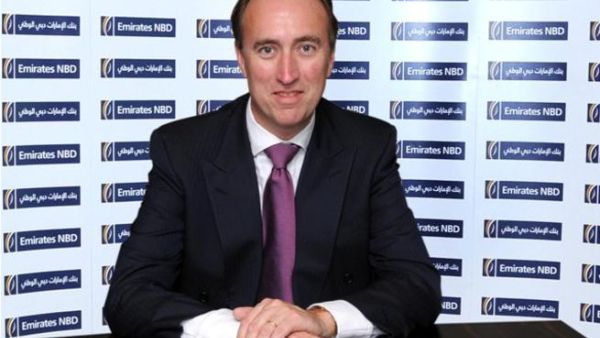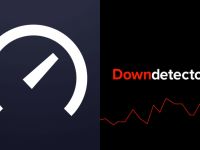Emirates NBD CIO: Commodities down, dollar up

On our watch list of potential big problems is the Euro zone. Nothing we saw last week reduced the risk of a possible blow up due to the current problems of Portugal and Greece. Our concerns increase when we hear comments from Euro zone politicians who try to dismiss the market’s worries. Luxembourg Prime Minister Jean-Paul Juncker said last week “We’re not discussing the exit of Greece from the Euro area. This is a stupid idea…..no way”.
Many economists sense a major realignment in the Euro zone is inevitable and they should just get on with it and deal with the consequences. Greek debt is now yielding 600 basis points more than German 10 year bonds a new record spread. Last week Portugal was offered another bail out worth €78 billion two-thirds provided by the region and one-third by the IMF.
However the Portuguese electorate looks likely to vote for fairly weak coalition in the coming general election that will struggle to implement the necessary spending cuts and tax increases. We believe the commodities correction provides a buying opportunity. The near 10% fall in the commodities indices was a wake-up call to those who may find themselves over exposed to commodities in their investment portfolios. It was tempting to see commodities as a one-way bet; however last week’s volatility provides a sharp reminder of how much commodity prices can move up and down. Oil fell 15% when news came through that Osama Bin Laden had been killed. Oil price weakness precipitated a general sell off that had traders scrambling to liquidate positions. Silver fell 27% the largest fall since 1975. However we always wish to take investors minds back to the basic fundamentals. Emerging market demand for commodities may strengthen and wane but it is fundamentally continuing to rise. Many commodities remain in short supply due to a lack of investment. However the pace of the rise in prices has at times exceeded the fundamentals. West Texas oil back below $100 at $97 starts to look interesting again given the likely continuing supply shortages facing off to still strong demand.
Gold below $1500 looks interesting given the ongoing geopolitical problems and risks in the Euro zone. Grains should have upside – wheat prices rose last week due to a 29% cut in the market forecast for wheat production in Kansas due to weather related problems. The negative view on the dollar was the other one-way bet that was slightly crushed last week. Whilst US economic data was mixed, Euro zone economic data surprised to the downside. Also whilst the Federal Reserve has started to talk about tightening monetary policy the European Central Bank (ECB) last week led the market to believe they would be going slower on raising interest rates. The dollar rose sharply against the Euro up 3.3% to $1.43 from 1.487.
There is quite a debate in the market about the current health of the US economy. The employment report at the end of last week was much stronger than expected. 244,000 new jobs were created in April well ahead of the 185,000 expected by the market. However in the detail the timing of Easter may have positively impacted the numbers. Also by sector key sectors such as government workers saw a fall in the number of people in employment and the service sector jobs growth was very modest. The main driver of higher employment was the retail sector that may have taken workers on for the Easter period. Also at the end of last week the latest report for jobless claims saw a sharp increase in people claiming unemployment benefits.
The initial jobless claims figure jumped to 474,000 from 431,000 the previous month and a forecast of 410,000. News flow from the US service sector was particularly poor. The service sector ISM survey fell to 52.3 from 57.8 and the new orders component fell from 64.0 to just 52.7 – a massive slump in confidence. The other worry was that although people are in work wage growth remains anemic at just 1.9% year-on-year. US treasury bonds had their fourth straight week of gains.
The weak tone to the economic data, problems in the Eurozone, and the mini collapse in commodity markets all helped. We also note the ongoing strength of the local bond markets most notably Dubai. Many of the credits have continued to give investors good absolute gains. The Dubai corporate bond market has been helped by a sharp fall in the credit default swap.
So what do we conclude from last week? Firstly inflation may dip back and indeed may have peaked in terms of momentum in April. Less risk from inflation would enable central banks to go a little slower in increasing interest rates. However, we do not believe that commodity prices will settle back too far given the still robust growth of much of the world.
The bad news is that the Euro zone is far from solving its problems – the Euro zone remains a cloud over markets. Key data this week includes a raft of important data out of China this week sees China’s main data release for April. Some comfort should be received from the inflation data where the CPI is expected to fall back from last month’s 5.4% to 5.2%. The data should laso show that China remains an engine of growth potentially helping the commodity markets to recover their composure after last week’s sell off. Industrial output should be up around 14.5% year-on-year. retail sales 17.6% year-on-year and fixed investment up 25% year-on-year.
Background Information
Emirates NBD
Emirates NBD, the leading banking group in the region, was formed on 19 June 1963, when H.H. Late Sheikh Rashid bin Saeed Al Maktoum signed the Charter of Incorporation of the National Bank of Dubai (NBD) which became the first National Bank established in Dubai and the United Arab Emirates (UAE). With the blessings of H.H. Sheikh Mohammed bin Rashid Al Maktoum, Vice President and Prime Minister of the UAE and Ruler of Dubai, NBD merged with Emirates Bank International (EBI) on 06 March 2007, to form Emirates NBD, the largest banking group in the region by assets. On 16 October 2007, the shares of Emirates NBD were officially listed on the Dubai Financial Market (DFM). The merger between EBI and NBD to create Emirates NBD, became a regional consolidation blueprint for the banking and finance sector as it combined the second and fourth largest banks in the UAE to form a banking champion capable of delivering enhanced value across corporate, retail, private, Islamic and investment banking throughout the region.






